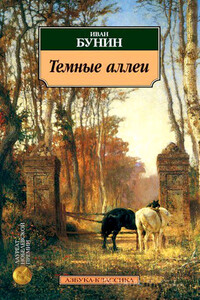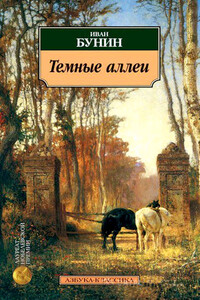|
| Whose fault is it? | Кто виноват! |
| We shall see what the new juries will do. | Вот что-то новые суды скажут. |
| God grant they do good! | Ох, дал бы бог! |
| Well, in prison, it seems, he remembered the venerable elder; the Bible, too, made its appearance again. | Ну-с, в остроге-то и вспомнился, видно, теперь честной старец; Библия тоже явилась опять. |
| Do you know, Rodion Romanovitch, the force of the word 'suffering' among some of these people! | Знаете ли, Родион Романыч, что значит у иных из них "пострадать?" |
| It's not a question of suffering for someone's benefit, but simply, 'one must suffer.' If they suffer at the hands of the authorities, so much the better. | Это не то чтобы за кого-нибудь, а так просто "пострадать надо"; страдание, значит, принять, а от властей - так тем паче. |
| In my time there was a very meek and mild prisoner who spent a whole year in prison always reading his Bible on the stove at night and he read himself crazy, and so crazy, do you know, that one day, apropos of nothing, he seized a brick and flung it at the governor; though he had done him no harm. | Сидел в мое время один смиреннейший арестант целый год в остроге, на печи по ночам все. Библию читал, ну и зачитался, да зачитался, знаете, совсем, да так, что ни с того ни с сего сгреб кирпич и кивнул в начальника, безо всякой обиды с его стороны. |
| And the way he threw it too: aimed it a yard on one side on purpose, for fear of hurting him. | Да и как кинулто: нарочно на аршин мимо взял, чтобы какого вреда не произвести! |
| Well, we know what happens to a prisoner who assaults an officer with a weapon. So 'he took his suffering.' | Ну, известно, какой конец арестанту, который с оружием кидается на начальство: и "принял, значит, страдание". |
| "So I suspect now that Nikolay wants to take his suffering or something of the sort. | Так вот, я и подозреваю теперь, что Миколка хочет "страдание принять" или вроде того. |
| I know it for certain from facts, indeed. | Это я наверное, даже по фактам, знаю-с. |
| Only he doesn't know that I know. | Он только сам не знает, что я знаю. |
| What, you don't admit that there are such fantastic people among the peasants? | Что, не допускаете, что ли, чтоб из такого народа выходили люди фантастические? |
| Lots of them. | Да сплошь! |
| The elder now has begun influencing him, especially since he tried to hang himself. | Старец теперь опять начал действовать, особенно после петли-то припомнился. |
| But he'll come and tell me all himself. | А впрочем, сам мне все расскажет, придет. |
| You think he'll hold out? | Вы думаете, выдержит? |
| Wait a bit, he'll take his words back. | Подождите, еще отопрется! |
| I am waiting from hour to hour for him to come and abjure his evidence. | С часу на час жду, что придет от показания отказываться. |
| I have come to like that Nikolay and am studying him in detail. | Я этого Миколку полюбил и его досконально исследую. |
| And what do you think? | И как бы вы думали! |
| He-he! | Хе-хе! |
| He answered me very plausibly on some points, he obviously had collected some evidence and prepared himself cleverly. But on other points he is simply at sea, knows nothing and doesn't even suspect that he doesn't know! | На иные-то пункты весьма складно мне отвечал, очевидно, нужные сведения получил, ловко приготовился; ну а по другим пунктам просто, как в лужу, ничегошечко не знает, не ведает, да и сам не подозревает, что не ведает. |
| "No, Rodion Romanovitch, Nikolay doesn't come in! | Нет, батюшка Родион Романыч, тут не Миколка! |
| This is a fantastic, gloomy business, a modern case, an incident of to-day when the heart of man is troubled, when the phrase is quoted that blood 'renews,' when comfort is preached as the aim of life. | Тут дело фантастическое, мрачное, дело современное, нашего времени случай-с, когда помутилось сердце человеческое; когда цитуется фраза, что кровь "освежает"; когда вся жизнь проповедуется в комфорте. |






